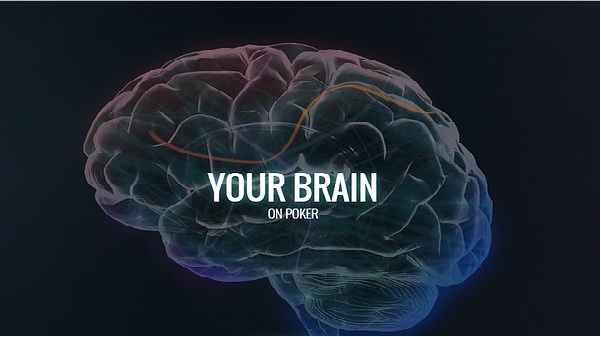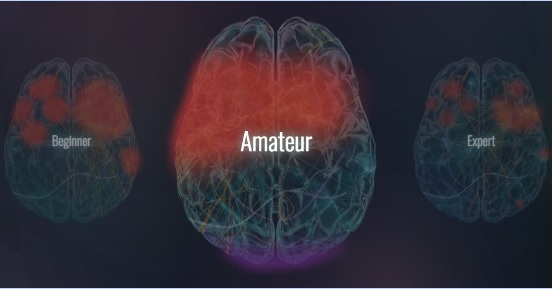Brain Maps Show Professional Card Players Are Led by Logic
Photo: Partypoker
A recent study conducted by partypoker has helped to provide insight into the competitive mind of card players.
Six poker players of differing levels, including both beginners and professionals, were asked to play a 40-minute session of Texas Hold’em whilst wearing EEG headsets from the company Emotiv. The headsets were able to record the brain activity of players throughout the different stages of the game, and these were then turned into brain maps and visualised here.
It was from these brain maps that the differences in activity could easily be compared between the players and one of the main findings from the study was that the professionals were led far more by logic than emotion and it was this ability to control emotion that was particularly highlighted. Sports Psychologist James Hazlett, who was asked to analysis the results, noted from the study that managing emotion plays a key role in player’s ability to perform at a consistently high level in a competitive setting. For example, during the ‘deal’, high beta activity in the left frontal lobe of the brain shows that all players at this stage are led more by logic then emotion. However the professional players were able to make quicker decisions with less mental effort. This can be seen in the brain map as there is reduced brain activity compared to amateurs.
Photo: Partypoker
Psychology Today, backed by scientific research, identified 4 key emotional styles in sport, two of which can apply to this study. The first is ‘Zen Master’, an emotional style that is commonly associated with professional players. This style is characterised by the player being able to remove emotion from their decisions. The second style that can be seen in this study is the ‘Seether’, which is usually associated with amateur players due to a build of anger and frustration throughout the game.
Professional players showed a more consistent level of engagement throughout the game. In competitive situations, it is common for players to experience an increase of adrenaline at key moments. This can negatively affect a player’s engagement with the game. Because professionals are more likely to stay engaged throughout the game, they remain more consistently focused when making decisions and are able to retain a ‘level head’. For amateur players, the rush of adrenaline can create a stress response which makes it harder to focus, and therefore harder to make decisions led by logic.




